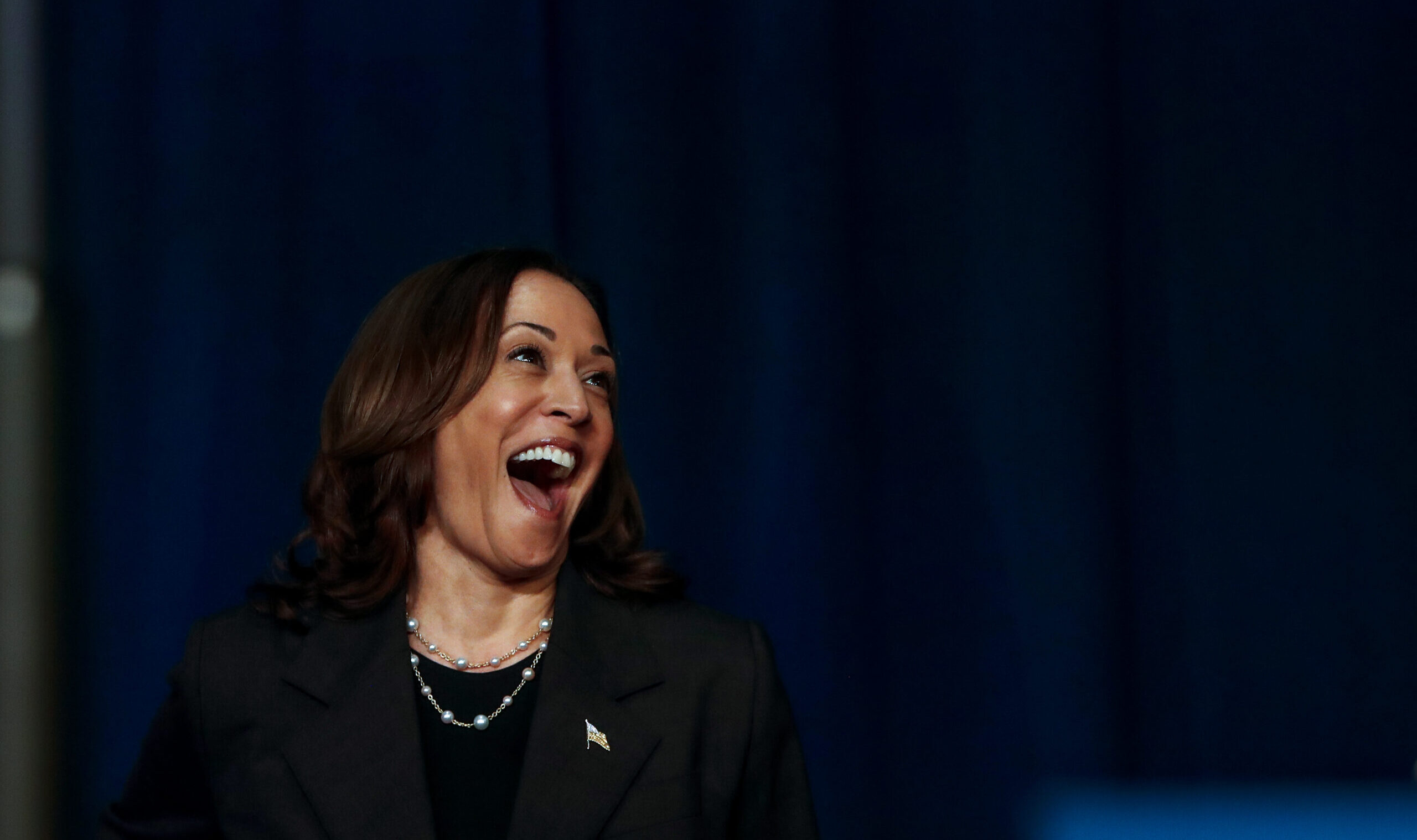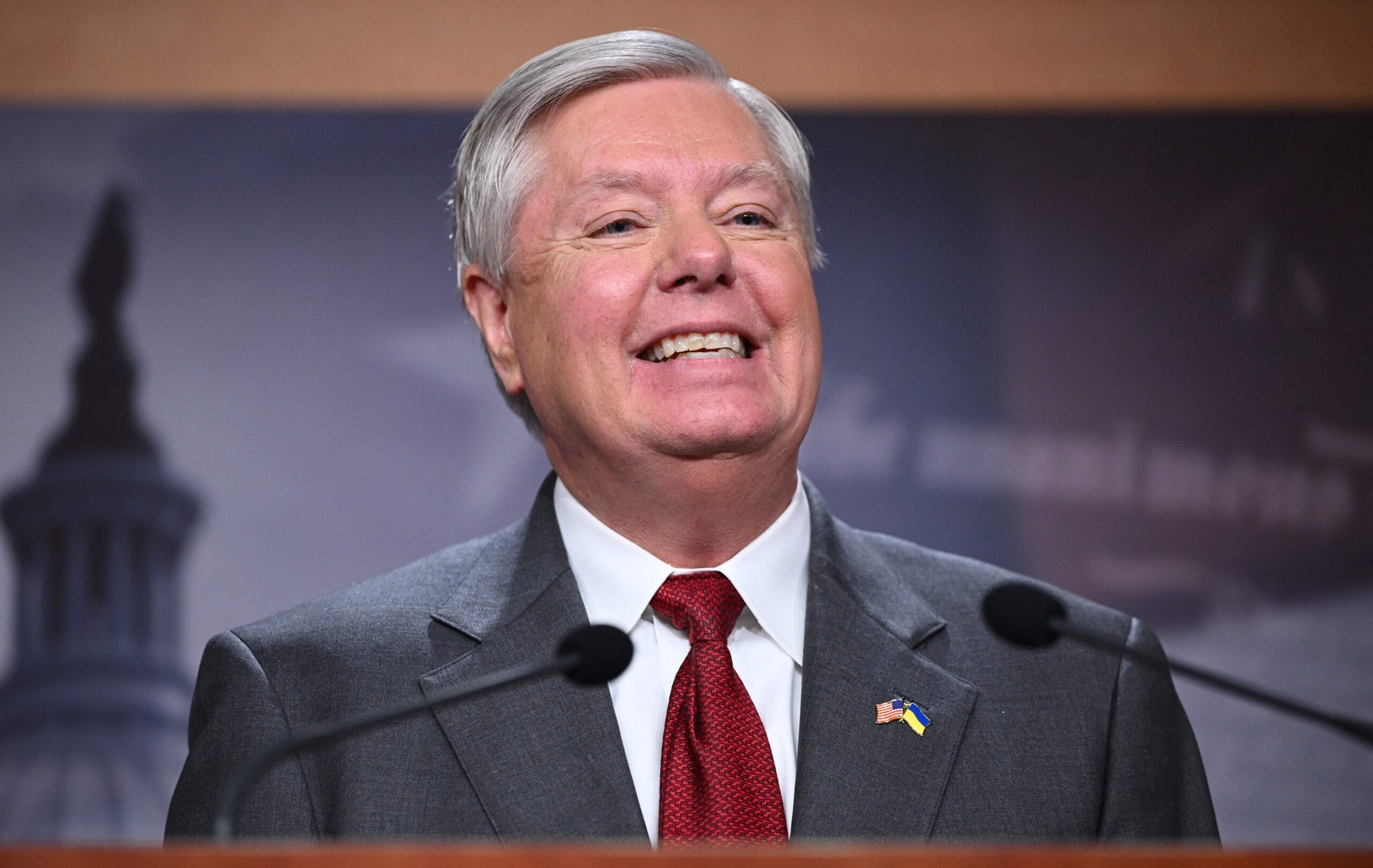
www.theamericanconservative.com
Why Jeffrey Epstein Won’t Die
Politics
Why Jeffrey Epstein Won’t Die
Trump should tell the whole sordid story, not try to kill it.
President Donald Trump wants to bury Jeffrey Epstein for good.
“We have a PERFECT Administration, THE TALK OF THE WORLD, and ‘selfish people’ are trying to hurt it, all over a guy who never dies, Jeffrey Epstein,” Trump wrote on Truth Social this weekend.
In the same post, Trump claimed that Barack Obama and Hillary Clinton, among other political rivals, had fabricated the Epstein files. Since influential MAGA voices—including members of Trump’s administration—had long speculated that Epstein’s child sex crimes implicated Democratic elites, Trump’s claim provoked whiplash across the country.
But in a new post Wednesday morning, Trump doubled down. “Their new SCAM is what we will forever call the Jeffrey Epstein Hoax, and my PAST supporters have bought into this ‘bulls***,’ hook, line, and sinker.” Trump denigrated those “past supporters” as “weaklings” who unwittingly advance a Democratic agenda.
“I don’t want their support anymore!” the president exclaimed.
Trump’s aggressive dismissal of the controversy—and of his own supporters who care about it—poses significant political risks. The Epstein affair, despite the president’s best efforts to kill it, isn’t dying. Indeed, Trump’s post this weekend was his first ever on Truth Social—his own platform—to be “ratioed,” getting more comments than likes. MAGA voters, evidently, won’t move on from Epstein just because the president instructs them to.
Just how much grassroots Republicans care about the issue isn’t clear, but they don’t like how it’s being handled. Only 4 percent of Republicans (and 3 percent of Democrats) are “satisfied” with the amount of info released about Epstein, according to a new CNN poll. “When you only have 4 percent [of Republicans] that is with Donald Trump on a particular issue, that is ridiculously low,” said CNN chief data analyst Harry Enten. “I’ve never seen anything quite like it.”
Of course, interest in Epstein will recede as new controversies arise, a fact that Trump may be trying to take advantage of. This weekend, the president threatened to take away the citizenship of the comedienne Rosie O’Donnell, rekindling a decades-long feud. Critics of Trump suspected a calculated diversion.
But the Epstein scandal, I predict, won’t ever fully go away. Indeed, it will join the ranks of the JFK assassination in the annals of America’s counter-establishment obsessions, and not only because its lurid details suggest a grand—and irresistibly alluring—conspiracy involving high-powered elites. Since Trump and Epstein were friends for more than a decade, the media will continue to uncover awkward facts about their relationship, as the Wall Street Journal did in a story published Thursday about a bawdy birthday letter the former allegedly once sent the latter. The president, if he doesn’t want the issue to cloud his administration and legacy, will need to order an actual, comprehensive, transparent investigation that satisfies the public.
One reason the scandal lately has ignited such fiery passions is that it synergizes with Israel-critical views that are gaining prominence in American politics, since Epstein had numerous ties to the Jewish state, including a close relationship with an Israeli prime minister. A Pew Research survey published in April found that a shockingly high number of U.S. adults—53 percent—expressed an unfavorable opinion of Israel.
As Israel’s brutal assault on Gaza—and its related antagonisms in the West Bank, Syria, Yemen, Lebanon, and Iran—incite public backlash around the world, more and more Americans are wondering why their government spends billions each year supporting the wealthy, powerful, and increasingly belligerent Mideast nation. Many are learning for the first time that the Israel lobby, not American interests, drives the U.S. policy of unconditional support.
Thus, Trump’s attempt to squash the Epstein scandal comes at a time when many Americans are primed to suspect that he’s doing so on Israel’s behalf. No proof has emerged that Epstein worked for Mossad, Israel’s national intelligence agency, as he reportedly boasted. Still, prominent MAGA voices have plausibly argued that Epstein was an agent or asset for Israel.
Conservative pundit Tucker Carlson leads the charge. “It’s extremely obvious to anyone who watches that this guy had direct connections to a foreign government,” Carlson said last week in a speech to young conservatives. He added that “every single person in Washington, DC” thinks that the foreign government was Israel.
But when Attorney General Pam Bondi was asked last week whether Epstein “ever worked for an American or foreign intelligence agency,” she gave the impression of never having considered the possibility. “To him being an agent, I have no knowledge about that,” Bondi said. “We can get back to you on that.”
Bondi’s non-answer points to another reason, in addition to Israel-related factors, that Epstein just won’t die: The administration’s ham-fisted effort to close the curtain on Epstein has only prompted more people to suspect that powerful elites are working behind the scenes to cover up a scandal of significant public interest.
Until the White House convincingly addresses the question of Epstein’s intelligence ties, the case cannot truly be considered closed. Another question must also be answered: How did Epstein, an apparent multi-millionaire or billionaire with unclear professional achievements, gain such incredible wealth?
Nevertheless, last week a two-page memo from the Justice Department and FBI declared the case closed. As I covered in my column days later, the memo not only failed to address Epstein’s intelligence ties and other important matters but raised more questions than it answered. For example, it said the agencies had found no evidence that Epstein ever blackmailed prominent individuals, yet the Wall Street Journal has reported that he used knowledge of businessman Bill Gates’s affair with a Russian woman to threaten him. Why, then, did the memo deny any evidence of blackmail?
And if Epstein wasn’t blackmailing high-profile associates, why did he bug his own palatial residences with concealed cameras? Many suspect he recorded powerful guests engaged in embarrassing if not criminal acts and later used the tapes to compromise them. At least one of Epstein’s accusers has claimed that in his home she saw pinhole cameras, including in bedrooms and bathrooms, and that she entered a “media room” in which strange men were “monitoring private moments.” What—and whom—did those men see?
We might have a better idea of what those monitors showed if the FBI hadn’t lost track of binders containing CDs and computer hard drives (and diamonds and passports) that they had recovered in a safe at Epstein’s New York City mansion. One of Epstein’s lawyers later returned the missing items, but can we be sure that no incriminating evidence was removed?
These are all legitimate questions, and Trump shouldn’t expect his supporters, on command, to stop asking them. “This Epstein sex ring operation… I’m not letting it go ever, ever,” said Dan Bongino, now deputy director of the FBI, back when he was a rabble-rousing podcaster. While Bongino is indeed letting it go, many MAGA voters and influencers are not.
And that’s not surprising. The most sensational version of the alleged conspiracy holds far too much symbolic significance for MAGA to simply move on, involving a secretive network of transnational elites evading accountability for heinous crimes against working-class American children.
Therein lies the danger for the president. “I could stand in the middle of Fifth Avenue and shoot somebody, and I wouldn’t lose any voters, okay?” Trump famously bragged during the 2016 campaign. Maybe so. But some lines even Trump can’t cross.
The president’s defensive behavior this past week has aroused suspicions that he participated in Epstein’s crimes, though Trump and the convicted sex offender seem to have had a falling out before the latter’s legal troubles began.
Given this background, it’s understandable that Trump would be wary about releasing the Epstein files. But with the sword of Damocles hanging over his head, Trump seems to have reacted by shooting his own foot. Surely there are better ways to manage a PR crisis than denouncing one’s own supporters as dupes and traitors.
Trump should instead come clean. My guess is the president never engaged in criminal activity with Epstein, and instead that the two uber-wealthy men did the sorts of unsavory and sometimes misogynistic things that New York City playboys did decades before the MeToo era. Let’s be honest: No one would be surprised.
If Trump took down the Damoclean sword on his own terms, the administration could then release the files without fear of too much blowback.
The president’s supporters would understand and still back him. What many of them can’t understand, or support, is pretending that the Jeffrey Epstein scandal never happened, or that it was a “hoax” invented by Democrats, or whatever other narrative the administration offers to avoid speaking candidly about the subject.
So allow me to give President Trump some Biblical advice: The truth will set you free.
The post Why Jeffrey Epstein Won’t Die appeared first on The American Conservative.

















